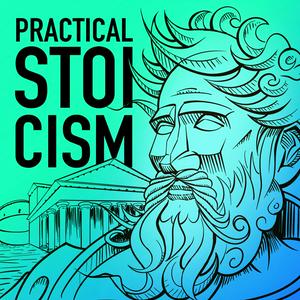You Might Suck, But You Don't Have To (Meditation 3.16)
In this episode I have a Trump-esque hair day, but, more importantly, we will close out Book 3 of Meditations by working through Meditation 3.16, which challenges us to recognize that there’s nothing supernatural about goodness. Our bodies, impulses, and rational faculties are the same as those of the worst villains and even the simplest beasts. What sets the good person apart is their commitment to making Virtuous choices — embracing Fate, preserving their rational mind, and acting Justly. I offer a little tough love in this episode, reminding us all that our moral failings are our responsibility alone. Then, after the break, I answer a listener question: Should a Stoic rebel against a corrupt government if it can help a revolution? We explore how Stoics can participate in revolutions Justly, choosing roles that align with their nature and skills, always guided by reason rather than emotion.
MEDITATION QUOTED:"Only this remains unique to the good person: that they love and embrace all that fate weaves for them. And also that they do not soil or disturb the divine presence seated in their breast, but instead work to preserve it. They do this by not speaking lies, and by acting justly rather than unjustly. And if anyone disbelieves that we live in these ways, we are not vexed by them nor do we turn against them, nor do we turn from our path toward the end of life — to which we must work to arrive pure, peaceful, comfortable with Fate, and ready to depart." — Meditations 3.16
THREE TAKEAWAYS:
— We are not made good by nature, but by conscious choice.
— Moral failings are not caused by external circumstances, but by voluntary decisions.
— Stoic involvement in revolution must be rational, Just, and aligned with one’s natural roles.
LINKS:
Go ad-free: https://stoicismpod.com/members
Order my book: https://stoicismpod.com/book
Source Text: https://stoicismpod.com/far
Follow me on Bluesky: https://bsky.app/profile/tannerocampbell.bsky.social
Follow me on YouTube: https://stoicismpod.com/youtube
Stoicism QOTD App: https://qotd.tannercampbell.net
Learn more about your ad choices. Visit megaphone.fm/adchoices
